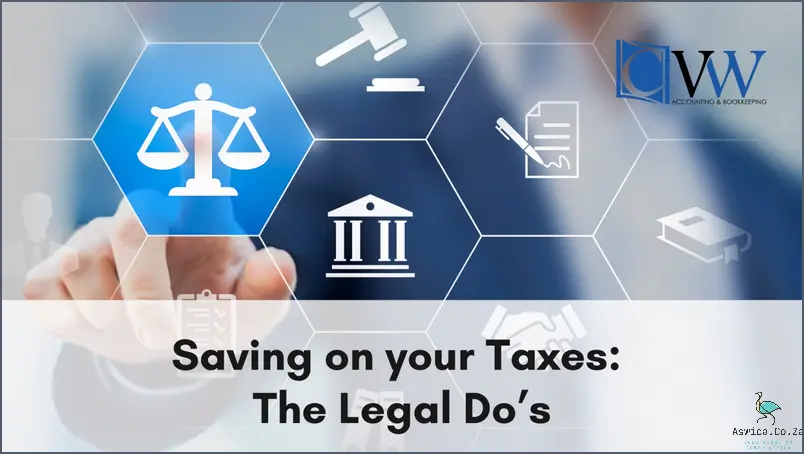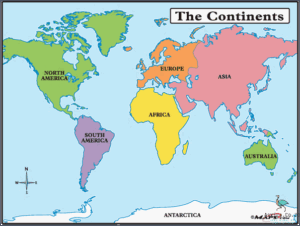
A sole proprietor is a business owner who runs their own business and is responsible for all the profits and losses that occur during that business. This is different from a partnership, where one or more partners share in the profits and losses of the business.
Contents
What Is A Sole Proprietor South Africa
A sole proprietor in South Africa is a person who owns and runs their own business, as opposed to a company or partnership. This type of business is the simplest form of ownership and is suitable for those who are just starting out in the business world. It involves the individual taking on the full responsibility of the business and its obligations, including any debts and liabilities. The sole proprietor is also responsible for the day-to-day running of the business, including the marketing, sales, and finance. Although the sole proprietor is at risk of any losses, they are also able to benefit from any profits the business makes. This business model is a popular choice for small business owners in South Africa and can provide a great opportunity for anyone looking to start their own business.
Advantages and Disadvantages of Sole Proprietorship in South Africa
As a business owner in South Africa, understanding the advantages and disadvantages of a sole proprietorship is essential to making an informed decision about the best business structure to pursue. A sole proprietorship is a popular business structure option in South Africa, as it is relatively simple to establish and maintain, and offers certain tax benefits. However, it is important to understand the potential drawbacks to the structure before making a final decision.
One of the primary advantages of a sole proprietorship in South Africa is that it is easy to set up and maintain. All that is required is for the business owner to register with the South African Revenue Service (SARS) as a sole trader. This process is relatively straightforward and does not require the assistance of an attorney or other professional services. Furthermore, the sole proprietor is the sole owner of the business, meaning that all decisions are made unilaterally and without the need for consultation.
Another advantage of a sole proprietorship in South Africa is that the business owner is able to take advantage of certain tax benefits. As a sole trader in South Africa, the business owner is able to declare their profits as income, and is thus subject to a lower tax rate. Additionally, the business owner is able to claim certain business expenses on their personal income tax return, further reducing the amount of taxes owed.
Unfortunately, there are certain drawbacks to a sole proprietorship in South Africa. As the sole owner of the business, the proprietor is personally liable for any debts or obligations incurred by the business. This means that the proprietor’s personal assets, such as their home, car, or other investments, are at risk if the business incurs any debts or is sued. Furthermore, the proprietor is responsible for all of the business’s activities, meaning that they must handle all aspects of the business, from accounting and taxes to customer service.
Ultimately, it is important to understand the advantages and disadvantages of a sole proprietorship in South Africa before making a final decision. While it is a simple and cost-effective structure that offers certain tax benefits, the proprietor is personally liable for all debts and obligations incurred by the business, and is responsible for all aspects of the business. It is important to weigh all of these considerations before making a final decision about the best business structure for one’s purposes.
Requirements for Establishing a Sole Proprietorship in South Africa
Establishing a sole proprietorship in South Africa is a relatively straightforward process, but there are certain requirements that must be met in order for the business to be registered correctly. A sole proprietorship is a business owned and run by a single individual, and as such, there is no need for any special legal documents or paperwork to be filed. However, there are certain aspects of the business that must be taken into consideration before it can be set up.
The first step in establishing a sole proprietorship in South Africa is to select an appropriate name for the business. The name must be unique, and it is important to ensure that it is not too similar to any other registered business. It is also important to ensure that the name is in compliance with South African laws and regulations. Once the name has been chosen, it must be registered with the Companies and Intellectual Property Commission (CIPC).

The next step is to obtain a tax number from the South African Revenue Service (SARS). This is necessary in order to pay taxes and to receive payments from customers. Additionally, it is important to obtain a business bank account in order to manage the finances of the business.
Once the name has been registered and the tax number obtained, the next step is to obtain any necessary licenses or permits. Depending on the nature of the business, different licenses or permits may be required. It is important to ensure that all the necessary licenses or permits are obtained before the business begins to operate.
Finally, it is important to obtain insurance for the business. This is necessary to protect the business from liability in the event of accidents or other damage. It is important to shop around and compare different insurance policies in order to get the best coverage for the business.
Once all the necessary requirements have been met, the business can be registered and the sole proprietorship can be established. It is important to remember that there are ongoing legal obligations that must be met in order for the business to remain compliant with South African law. Additionally, it is important to maintain accurate financial records and to pay taxes on time in order to ensure the business’s continued success.
Taxation Requirements of Sole Proprietorships in South Africa
As a business owner in South Africa, understanding the taxation requirements of operating a sole proprietorship is essential. A sole proprietorship is a type of business that is owned and operated by one person, and it is the most common type of business in South Africa. While there are some advantages to owning and operating a sole proprietorship, such as avoiding double taxation, there are also some taxation requirements that must be met. In this article, we will discuss the taxation requirements of sole proprietorships in South Africa.
First, it is important to understand that the South African Revenue Service (SARS) is responsible for the collection of taxes from sole proprietorships. As a sole proprietor, you must register an income tax number with SARS and provide details of your business activities. You will also be required to submit an annual tax return, which must include details of your income, expenses and any other deductions that may apply.
In addition to income tax, sole proprietorships may be required to pay other taxes, such as Value Added Tax (VAT), Capital Gains Tax (CGT) and Employees Tax (PAYE). These taxes are all levied at different rates and are based on the type of activity that the business is engaged in. For example, businesses that generate income from the sale of goods or services may be liable for VAT, while businesses that purchase and sell investments may be liable for CGT.
Sole proprietors are also responsible for the payment of any employee taxes, such as PAYE. This tax is calculated based on the employee’s salary and is paid to SARS on a monthly basis. The employer must also register the employee with SARS and provide the employee with a tax certificate in order to deduct any taxes that may be due.
Finally, sole proprietors must also pay tax on any dividends or profits that are earned from their businesses. Dividends are taxed at a rate of 15%, while profits are taxed at a rate of 28%. It is important to note that any capital losses may be offset against any capital gains, meaning that the overall tax burden may be reduced.
In conclusion, there are a number of taxation requirements that must be met when operating a sole proprietorship in South Africa. It is important to be aware of these requirements and to ensure that you are compliant with all of the relevant laws and regulations in order to avoid any penalties or fines. With the right knowledge and understanding, operating a successful sole proprietorship in South Africa can be both rewarding and profitable.
Conclusion
A sole proprietor is a business owner who owns the sole legal and equitable interest in the business. This means that the sole proprietor has full control over the business and all its assets. This type of business ownership is common in South Africa.




